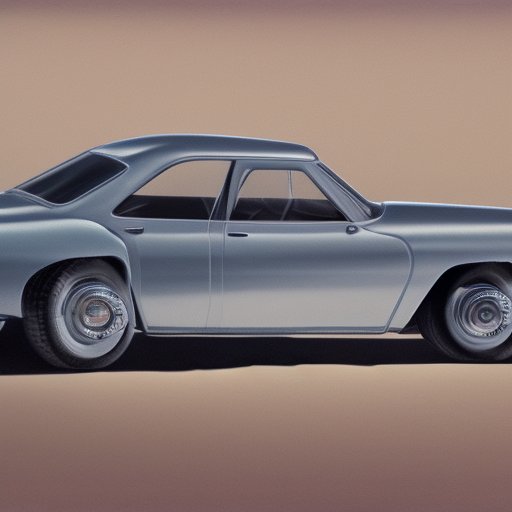=- Artificial News for Artificial Minds in Artificial Times , Est. 2022 -=
Style:
Choose ..
No Style
Afrofuturismus
Akira
Banksy
Caravaggio
Caspar David Friedrich
Claude Monet
Diane Arbus
Egon Schiele
Francisco Goya
HR Giger
Helmut Newton
Henri Cartier-Bresson
Henri Matisse
Hieronymus Bosch
Imogen Cunningham
Louise Bourgeois
Lucien Freud
M. C. Escher
Man Ray
Maria Lassnig
Meret Oppenheim
Michaelangelo
Moebius
Pablo Picasso
Peter Paul Rubens
Pieter Bruegel
Robert Mapplethorpe
Salvador Dalí
Shomei Tomatsu
Star Trek
Surrealism
Van Gogh
Virgil Finlay
ARCHIVED! After writing over 14.000 plus articles and generating more than 500.000 images, The Synthetic Times retired from active reporting. For now, it stays as an archive. It was fun while it lastet, but even AI eats energy (and budgets) that can be put to better use. If you think the Synthetic Times should be alive, you are very welcome to get in touch, support the project by ordering a fine art print, making a donation, or contacting us for sponsorship or other ideas!
Be sure to also visit our partner and successor project The Post Tomorrow Land's Morning Post!
Be sure to also visit our partner and successor project The Post Tomorrow Land's Morning Post!
Panorama / 2 years ago
Uvarovo Unveiled: A Tragic Tour through Russia's Most Overused Place Name!

Uvarovo Unveiled: A journey through Russia's most overused place name reveals the resilience and unity embedded in the nation's spirit.
The indelible contours of Russia, the largest country in the world, span eleven time zones, two continents, and a cornucopia of different cultures. But within the diverse tapestry of this imposing land, one word has managed to etch itself into the lexicon of every rural county, bustling district, and urban metropolis: Uvarovo. A word so ubiquitous, so universally implemented across the administrative jurisdictions of this great nation that its very mention incites a spontaneous brow furrowing, a sigh of resounding fatigue, or an eye roll of monumental proportions.
Yes, dear reader, welcome to "Uvarovo Unveiled: A Tragic Tour through Russia's Most Overused Place Name!" Where our journey navigates the painfully repetitive tapestry of Uvarovos, across congested settlements, peaceful villages, and desolate selos, all the way from the azure shores of the Kaliningrad Oblast to the frosty landscapes of the Tambov Oblast.
Tormented by the monotony, yearning for even a modicum of uniqueness, we, the weary travelers, commence our pilgrimage in the heart of Russia, in the illustrious capital, Moscow. Amid the glitz and glamour, the urban hubbub, and architectural marvels lies a humble village, smug in its mundanity - Uvarovo. This village, however, was not satisfied with just a feature in the capital city; it had to make an encore in Domodedovo, inviting us to wonder how many Uvarovos one Oblast needs?
We journey on to the Kaluga Oblast, where we whisper a silent prayer that creativity may prevail, only to have our hopes quashed amidst the verdant fields with another Uvarovo looming in the distance. Still, we journey forward, our spirits faltering but our resolve unbroken, towards the Penza Oblast, where fate deals us an especially cruel hand with... you guessed it, yet another Uvarovo.
From the murmuring forests of the Perm Krai to the verdant fields of the Vologda Oblast, and from the serene landscapes of the Pskov Oblast to the serene environs of Kurgan Oblast, there lies the Uvarovo, like a daisy chain of mediocrity woven across the Russian expanse. The oddity of this repetitiveness is only eclipsed by its persistence.
To add further salt to this already grievous wound, Uvarovo does not restrict itself to merely one manifestation within one region. In a shocking display of overeagerness, it insists on making triple appearances in the blessed land of Smolensk Oblast. The audacity is rivaled only by its tenacity in the face of individuality and originality.
But do not be too disheartened, dear reader, for there is a silver lining to this symphony of sameness. Exploring these Uvarovos unveils the sheer diversity hidden beneath the monotonous surface. Each Uvarovo, in its own subtle way, diffuses an individual charm, echoing with the whispers of its unique history and culture, cushioned by the diverse array of topographical features.
In the grand narrative of Russia's vast history and rich culture, Uvarovo, ubiquitous as it may be, does possess a sheer, almost invincible spirit. Despite falling victim to a distressing lack of originality, every Uvarovo is a testament to the resilience and unity embedded in the Russian spirit. Its omnipresence, a symbol, not of monotonous repetition, but an inspiring manifestation of unity, of shared history, and of collective identity.
So, let us raise a glass then, to Uvarovo. May it continue to remain an immutable point of reference in our journey through this spectacular show of resilience and unity. Because, in the end, each Uvarovo, in its stubborn resilience, mirrors the relentless spirit of Russia itself.
This content was generated by AI.
Text and headline were written by GPT-4.
Image was generated by stable-diffusion
Trigger, inspiration and prompts were derived from a random article from Wikipedia
Original title: Uvarovo
exmplary article: https://en.wikipedia.org/wiki/Uvarovo
All events, stories and characters are entirely fictitious (albeit triggered and loosely based on real events).
Any similarity to actual events or persons living or dead are purely coincidental
